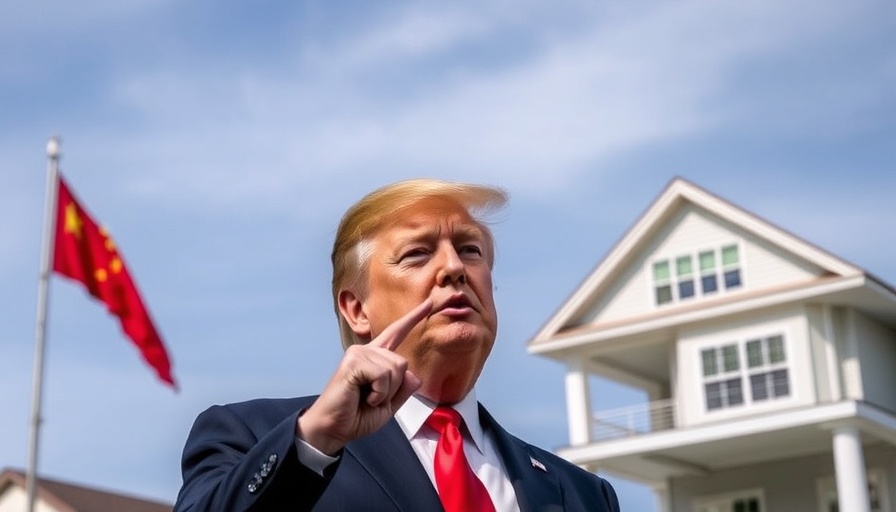
Trump's Tariff Strategy: A Calculated Gamble?
President Donald Trump's recent announcement of a 50% tariff on Chinese imports marks a significant escalation in the ongoing trade war, which has now cumulated to an astonishing 104%. This figure not only reflects escalating tensions between the two economic giants but also showcases Trump's approach to international trade as a high-stakes game. With tariffs starting at 20% at the beginning of his second term and gradually increasing, one has to wonder if this is a tactical decision aimed at reshaping U.S.-China trade relations, or if it is a gamble that may cause more harm than good.
Homebuilders Bear the Brunt
While the announcement might seem advantageous for an administration prioritizing American interests, it has had immediate and detrimental effects on the housing sector. Major publicly traded homebuilders, including LGI Homes and KB Home, saw stock declines between 2% to 8% just hours after the tariff news broke. This downturn is particularly alarming as these companies rely heavily on imports from China for essential materials such as hardware and plumbing fixtures. The dependency on Chinese imports not only reveals a vulnerability but also underscores the ripple effect tariffs can have on local businesses and the housing market.
The Market's Mixed Reaction
The immediate reaction of the stock market following Trump's announcement was indicative of investor sentiment. Major indexes initially rose but quickly flipped into negative territory, raising concerns about economic stability. Furthermore, as financial leaders expressed worry over the ramifications of these tariffs, mixed reactions have emerged from various sectors. Elon Musk's vocal criticism of tariff rates on the EU, for instance, highlights a growing dissatisfaction among corporate executives regarding the administration's trade policies.
Counterarguments: Is This Approach Sustainable?
While some view Trump's tariffs as a means of leveling the playing field, critics point out that such tactics may breed more hostility in international relations. In fact, Japan, a long-standing ally, faces an elevated tariff of 24% when their rate stands at only 2%. This prompts questions about the sustainability of Trump's economic strategy and whether it can successfully stimulate domestic industries without creating unintended consequences.
Looking Ahead: Implications for the Housing Market
The repercussions of this trade war may not only affect stock prices today but have long-term implications for the housing market's health. Should tariffs remain in place or escalate further, the increased costs may ultimately be passed on to consumers, further squeezing already tight housing inventories. As both sides reassess their strategies, the question remains: will a resolution be reached before the impacts become irreversible?
To stay ahead of these economic shifts and understand how they could impact real estate decisions, becoming informed is paramount. With tariffs shaping the landscape of the housing market, this is a crucial time for stakeholders—from homebuyers to investors—to examine their options.
 Add Row
Add Row  Add
Add 




 Add Row
Add Row  Add
Add 

Write A Comment